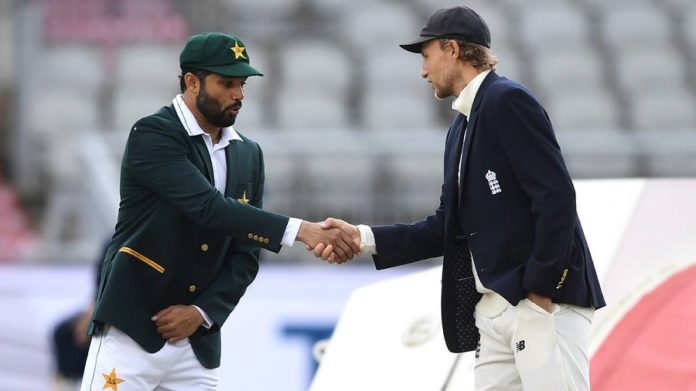England and Wales Cricket Board is earning the admiration of the rest of the cricket world for some of the initiatives they announced this week.
The foremost of them is England proposing to tour Pakistan in January next year for a short T-20 series. For a nation like Pakistan that has been starved of international cricket due to political unrest in the country, a tour by England will be a godsend on many counts.
Firstly, it will help Pakistan to revive the game by attracting more top nations. Secondly, it will boost their finances through television revenue. Furthermore, in these times of uncertainty due to the pandemic, such unscheduled tours are very much welcome.
England have also earned the admiration of all and sundry for indicating their willingness to bear the cost of their chartered flight to South Africa later this year instead of passing the bill onto their hosts – Cricket South Africa. The financial status of CSA is not too cozy and the ECB taking up a bill to the tune of 350,000 Sterling Pounds will be a huge relief to the hosts.
Read More: Jones, Lara, Hussey, Dhoni: who was the best against Sri Lanka?
ECB must be feeling compelled to stretch out a helping hand after their home season went uninterrupted with four teams turning up in the UK despite the country being one of worst hit by the pandemic. Pakistan was one of those four countries to tour the UK.
It is this kind of leadership that then ECB chief Giles Clarke promised smaller cricket boards when attempts were being made for a takeover of the ICC by the Big Three. Sadly, Clarke went back on his word and Sri Lanka in particular were made to feel the pinch.
Mere months after the Big Three’s takeover of the governance of the sport, Sri Lanka won the ICC World T-20 in 2014. The team’s Head Coach at that point was Paul Farbrace. Sri Lanka’s very next assignment was a tour to England and the players and SLC were in shock as Giles successfully managed to get Farbrace on board in the ECB’s coaching staff as deputy to Head Coach Trevor Bayliss! What is more disgraceful was that Farbrace joined the English ranks just a couple of weeks before Angelo Mathews’ side landed in the UK. Poor Marvan Atapattu was asked to take over as Head Coach and he did a terrific job as Sri Lanka won both the Test and ODI series against England. What the ECB did was not the leadership that smaller nations expected from the Big Three. Thankfully, England is now taking an active role to help smaller boards.
Later this year, India will tour Australia for a full series spending a couple of months down under. This ensures that financially Cricket Australia is sound despite being another country severely affected by the pandemic. Needless to say, cricket tours by India bring a large chunk of money to cricket playing nations and particularly smaller boards like SLC depend heavily on India. So, it is only fair that India ensures that other series involving them that were postponed are held. SLC was supposed to host Virat Kohli’s side for T-20s and ODIs this year and hopefully the series will be rescheduled next year.
Cricket Australia is another entity that gave the cricketing world much needed leadership and direction much before the Big Three concept was mooted. Leaders like Bob Parish, Malcolm Grey, Sam Loxton Malcom Speed and Kevin Roberts come to mind. Roberts, their recent CEO was so fond of Sri Lanka that he was photographed playing cricket with youth in the Galle Fort.
Not just playing a game of cricket but beyond that as well. When Ana Punchihewa was fascinated by the idea of employing a foreign coach, he had little clue that it was going to cost his board an arm and a leg. The price of Dav Whatmore was US$ 100,000 annually. The board could only dream of such big money in 1995. The Australian Cricket Board paid the full amount so that SLC could hire Whatmore.
Australia also gave Sri Lanka opportunities by hosting them frequently for bilateral games and their annual tri-nation competition. It should be also noted that Australia hosted Sri Lanka for a three-match Test series seven years before England hosted them for three games.
Read More: Resuming international cricket; a counterpoint
To their credit, Cricket Australia also hosted a series of exhibition games involving some of the top players in 2005 to help victims of the tsunami and many Sri Lankan families benefited.
Now that some reasonable men in cricket like Sashank Manohar have stepped down, we have Hobson’s choice but to live with the Big Three concept. But certainly, India, England and Australia can make some concessions to help smaller boards. Giving away some of the popular ICC events like the World Cups to smaller boards is one of them. If the status quo continues, we may not see a World Cup game on our soil in our lifetime. The Big Three are already making a kill by sharing the lion’s share of ICC revenues. There has to be a level playing field.














